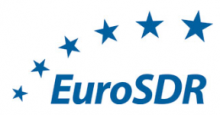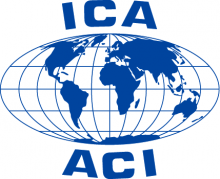Mapping Places for Digital Natives - Literature, practical experiences, perspectives
‘Digital natives’ refer to the generation who was born in a society with rampant digital technologies. Whatever the position of digital natives in the life cycle of geographical information, producer or user, it is quite possible that their expectations and capacities will differ from these of the former generation. This seminar is co-organized by EuroSDR Commission 4 on information usage, AGILE and ICA Commission on cognitive issues in geographic information visualization to bring together scientists and practitioners to study what do the literature and national mapping agencies’ experience tell us about the following questions :
What will be meaningful places and relevant user tasks and decisions about places for this generation, requiring maps? Digital technologies change our relationship to space and to people hence to what we call places.
What will be usable maps for this generation? Digital technologies change our relationship to programs hence to geodatabases and to algorithms thanks to smart assistants and pervasive architectures.
An expected output of this seminar is to identify potential further actions. How can EuroSDR support scientific communities in this field? What results are mature enough to be benchmarked for future developments in the field of national mapping agencies missions?
PROGRAM
9h30 : Welcome coffee
10h00 : Introduction, Bénédicte BUCHER, IGN France, EuroSDR
10h15 : Swisstopo questions, André STREILEIN, SwissTopo
10h30 : IGN-France experience with respect to these emerging new needs, Frédéric CANTAT, IGN France
One vital concern for IGN France : how to keep the link with digital natives. Two phenomena had urged IGN France to prove its business value on the part of digital natives using of geoinformation : the end of compulsory military service in France (since 1997) and the advent of GAFA and Apps. Two ways are principally explored : working since ten years with Ministry of Education upon a pedagogic platform for teaching geography (called Edugeo) ; proposing unique services or events whose purposes are to touch young people (such as « minecraft à la carte » or « Sam’di Géo » or « escape games » in Georoom at Saint-Mandé).
10h45 : Place models beyond territoriality, Christoph SCHLIEDER, University of Bamberg, Cultural Informatics Research Group
Research on place-based GIS studies geo-services, which present and represent the physical environment in ways that are close to the user's cognitive conceptualization of places. The talk contrasts spatial with "platial" information processing tasks and discusses lessons learned from two application scenarios: geographic recommender systems for tourists and educational location-based games. In both scenarios the spatial conceptualizations are epistemic in the sense that it matters not just whether some place A is part of some other place B but also whether the social actors believe that this is the case. Such epistemic place models may help to gain a better understanding of shared (or: non-territorial) uses of platial resources.
11h15 : The new generation of spatial thinking citizens, Marinos KAVOURAS, Dean of the School of Rural and Surveying Engineering, National Technical University of Athens (NTUA)
What is common in tasks such as reading a map, finding your way in a shopping mall, interpreting a diagram, and understanding the spatial distribution of a phenomenon or the association of places and events? They are all tasks that rely on a mental skill called spatial or geospatial thinking. Spatial thinking has lately been acknowledged as an important ability both for sciences and everyday life. A 2006 report from the US National Research Council "Learning to Think Spatially: GIS as a Support System in the K-12 Curriculum" underlined that "without explicit attention to [spatial literacy], we cannot meet our responsibility for equipping the next generation of students for life and work in the 21st century". Spatial thinking is considered as a key ability for the STEM disciplines (Science, Technology, Engineering, and Mathematics). Research results stress the rewarding effects of developing geospatial skills in increasing the participation in STEM disciplines, lacking of which acts as a barrier for students leading them to dropout. This presentation outlines the major aspects and latest developments of spatial thinking in the digital era.
11h45 : Social media for mapping places: from VGI to the check-in, Marta SEVERO, EA DICEN, University of Paris Nanterre
New technologies, and notably social media, have profoundly changed the relationship of young people to maps. On the one hand, through applications such as Google Maps and Waze, but also through recommendation platforms such as TripAdvisor or Foursquare, maps become everyday tools that facilitate the orientation in the geographical space and the identification of good addresses. On the other hand, Digital Natives are more conscious of their location and of the link to places thanks to the success of the “check-in”, that is to say the public declaration of the position on Facebook, Instagram or Twitter. Through the presentation of practical experiences and academic case studies, this communication will provide some insights on how new communication platforms are proposing to young people new approaches to mapping.
12h30 : Lunch break
14h00 to 16h30 : Open discussion involving all participants : What can we tell about the initial questions? Are there take away messages for national mapping agencies, for EuroSDR, for communities? Perspectives for further actions.
16h30: End of seminar
REGISTRATION
The registration is free. To participate to this seminar, please register by sending a mail to a member of the organizing committee :
- Bénédicte Bucher, IGN France, EuroSDR (benedicte.bucher@ign.fr)
- André Streilein, SwissTopo, EuroSDR (Andre.Streilein@swisstopo.ch)
- Sidonie Christophe, IGN France, ICA (sidonie.christophe@ign.fr)
- Marinos Kavouras, National Technical University of Athens, AGILE (mkav@mail.ntua.gr)
VENUE
The venue is in Paris city center, in the South East. To plan your venue by public transport you may refer to https://www.ratp.fr/en.



